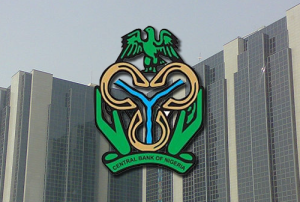
Central Bank of Nigeria (CBN) may devalue the naira further if it is found to be in the nation’s interest, saying hard choices would be made next year.
The Director, Monetary Policy Department, Mr. Moses Tule, disclosed this to reporters in Abuja He said the restriction on foreign exchange may continue until the country has built its reserves to over $50 billion.
He said analysis in newspapers and other media platforms cannot push the CBN into devaluing the currency, but the CBN would take the right decisions on the naira.
“No matter how good a professor of war studies is, he cannot tell a general how to conduct and deploy his men.
“The general is the man on the field, he is where the battle is, he has his maps and strategy for the battle that will give him victory no matter how knowledgeable the professor is, he cannot advise him in the battlefront,” he said.
“People should respect institutions, so if you have some advice to give, you can always write to the CBN governor. But no Central Bank takes decisions just because analysts either in newspapers or on television recommend that the naira should be devalued today, as policy-makers have to weigh the fundamentals.
“However, the CBN is holistically looking at the issues, and as we have consistently said, we will not hesitate to take the right decision that in our opinion is in the best interest of the country and help realise the goals of government as enunciated in the 2016 budget.
“So, overall that is the position of the CBN; there is a policy direction which government has given in the 2016 budget and every Central Bank works with the policy direction of government and we will not work outside that framework,” Tule said.
On the ban of debit cards abroad, Tule said the limitation was not imposed by the CBN, but by the commercial banks themselves. “The limitation on the use of debit or credit cards outside the country was not a limitation that was placed by the CBN.
“They were restrictions that deposit money banks placed because they have to settle whatever transactions you make with your debit cards with their corresponding banks in foreign currency. And if the banks do not have the foreign currency to do that, then you create a liability problem for them.
“Given the level of current flow into the reserves, by the time we meet these priority areas, you will discover that people who are using their debit cards overseas for shopping can never be on the priority list,” Tule said.


Be the first to comment